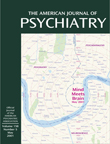What distinguishes psychotherapy, the “talking cure,” from other forms of treatment is that the entire transaction between patient and therapist takes place using speech and language. It is a conversation with clear-cut linguistic rules, which, if broken, render communication meaningless and indecipherable. On the basis of this premise, Elaine Chaika, Professor of Linguistics at Providence College, R.I., believes that the field of linguistics has something to offer the field of psychotherapy. Trained by speech therapists in England, where they are licensed to conduct psychotherapy, Chaika uses speech therapy as a model for psychotherapy. If therapists learn to listen better and patients learn to speak more clearly, then therapeutic change will be achieved.
Chaika argues that therapy is a joint speech event in which both parties work together using culturally based rules, such as syntax and semantics, to communicate. She suggests that good therapists are more attuned to the patient’s use of language and are able to fall into a “rhapsodic” rhythm with the patient. Conversely, bad therapists harm patients by their failure to listen. I doubt anyone would disagree that listening and communication skills are crucial for effective psychotherapy. Although it is intriguing to hope that knowledge of linguistics might help us to become better therapists, Chaika offers no evidence in this book that linguistics actually has anything to contribute to knowledge about psychotherapy.
Of the six chapters, two are dense introductions to linguistic principles and the other four demonstrate Chaika’s premise that therapy can be described in linguistic terms. Yes, patients and therapists use language to communicate. We use proverbs, metaphors, idioms, nonverbal gestures. We repeat what the other person says to indicate that we understand, and sometimes we even finish each other’s sentences. We have well-established rituals for greeting and leave-taking, and often we give answers when asked a question. In other words, patients and therapists play by the same linguistic rules. Although Chaika believes that linguistic analysis of these therapy conversations has much to offer and claims to have data to support her position, I found no data in my reading, and she is not knowledgeable enough about psychotherapy to offer even a clinically compelling argument. As therapists, we are already fluent communicators, and more explicit knowledge of linguistic rules will not improve our fluency. If my intuitive communication skills guide me in using a particular metaphor or in understanding the implications of the patient’s use of a particular metaphor, the recognition that we use metaphor as a linguistic device does not offer much clinical benefit.
At times, Chaika’s clinical analysis is correct but obvious: patients who use sentences without agents are trying to avoid responsibility. At other times, her advice is subtle but not supported by any data: since proverbs are community-based, they are most effective with addictive disorders. In all cases, Chaika’s discussion of psychotherapy is not informed by a basic knowledge of the literature. For example, she devotes one chapter to the idea that patients construct personal narratives without any mention that this topic has dominated the psychotherapy literature over the last decade or more.
I was very disappointed by this book in part because I had been aware of Chaika’s solid record of research analyzing the linguistic errors of schizophrenic patients. She has catalogued the kinds of speech disorders characteristic of schizophrenia. This research has implications for the associated thought disorder and underlying neuroanatomy. She hypothesizes that individuals with schizophrenia pay poor attention to their linguistic productions, do not self-monitor, and therefore are unable to correct their own linguistic errors. Unfortunately, in this book, Chaika goes well beyond her own research findings in schizophrenia to present ideas about psychotherapy, often with patients who do not have schizophrenia.
One reassuring thought: lest anyone believe that the practice of psychotherapy is merely the application of commonsense, it is comforting to know that people in other fields don’t know the first thing about how to conduct therapy.

